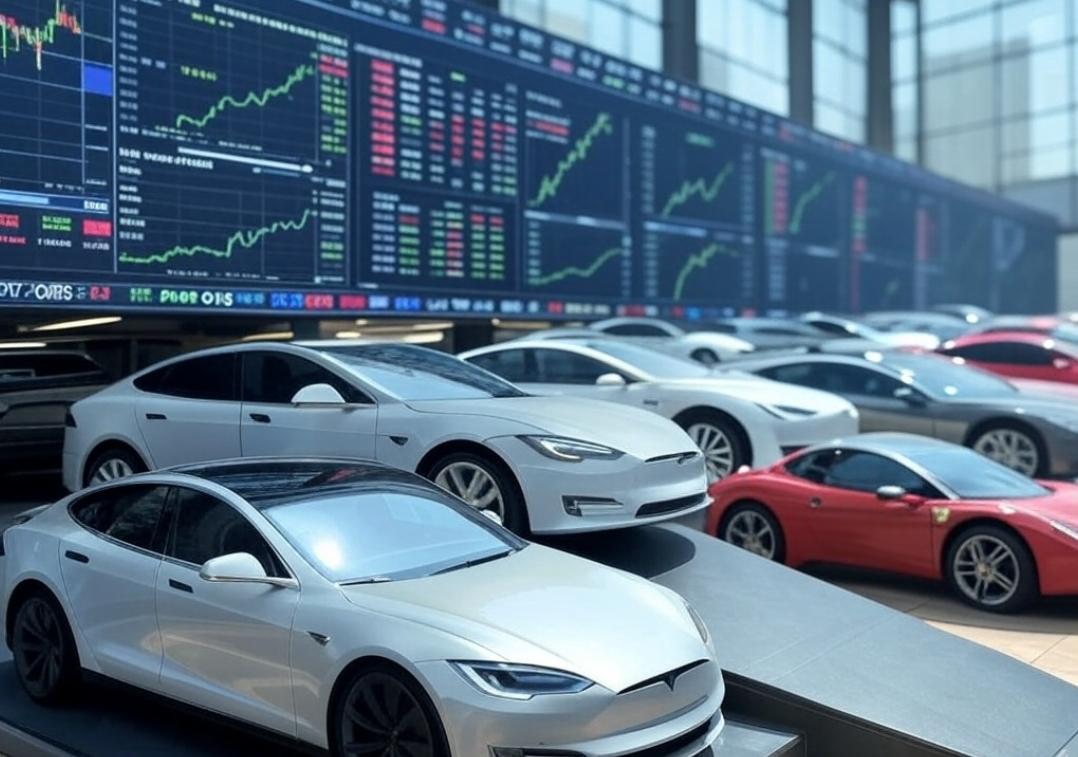
The broader market witnessed heavy selling pressure, primarily led by weak global cues, Sectors like IT and banking faced sharp declines, contributing to Nifty's fall. However, the auto sector emerged as a bright spot, showing resilience amid the downturn. Stocks of major automakers like Tata Motors, Mahindra & Mahindra, and Maruti Suzuki outperformed, supported by positive sentiment by Global Brokerages,Tata Motors trading in Green, Whereas Mahindra and Mahindra Up 1%
Tesla's Entry into India: What Analysts Say:Tesla's long-anticipated entry into the Indian market has been a hot topic in the automotive industry. With the Indian government formulating policies to promote electric vehicle (EV) adoption, the move is expected to have widespread implications. Two major brokerage firms, Nomura and CLSA, have shared their insights on Tesla’s impact on the Indian auto market.
Nomura's Take on Tesla’s India Entry
According to Nomura, India's EV policies will accelerate the adoption of electric vehicles, creating a favorable environment for Tesla and other global original equipment manufacturers (OEMs) to invest. Key takeaways from Nomura's analysis include:
The new EV policy will support Tesla’s entry into India, encouraging other global players to consider investments.
Increased EV adoption will lead to an expansion of India's EV charging infrastructure.
Indian auto component manufacturers like Sona Comstar, Sansera, and Motherson Sumi could benefit from Tesla’s entry.
Tesla is expected to compete with luxury OEMs, similar to its strategy in other global markets.
The speculation about Tesla launching a budget-friendly ₹21 lakh vehicle is unlikely, given its premium positioning.
CLSA’s Perspective on Tesla’s Market Impact
CLSA takes a slightly different stance on Tesla’s potential impact on the Indian auto sector. While acknowledging the growth potential, the firm highlights several challenges and realities:
Tesla’s market share in India could grow if it introduces a sub-₹25 lakh model.
The de-rating of Indian automaker M&M (Mahindra & Mahindra) has already factored in Tesla’s entry.
Tesla’s presence is unlikely to significantly affect major Indian auto players like Maruti Suzuki, Hyundai Motors India, or Tata Motors.
Tesla’s arrival may drive premiumization in the Indian auto market, attracting high-end consumers.
The firm warns against excessive market and media hype surrounding Tesla’s entry.
For Tesla to scale successfully in India, local manufacturing will be crucial.
Even with import duties below 20%, Tesla's cars are unlikely to be priced under ₹35-40 lakh on-road.
Tesla’s foray into the Indian market presents both opportunities and challenges. While government policies and growing EV demand could provide a strong foundation, factors such as pricing, infrastructure, and competition will determine Tesla’s success. Investors and industry watchers will be keenly observing how the company navigates these complexities in one of the world’s fastest-growing automobile markets.
Stay tuned for more updates on India’s evolving EV ecosystem!
Disclaimer: The information provided in this article is for informational purposes only and should not be considered financial or investment advice. Readers are encouraged to conduct their own research or consult with a financial expert before making any investment decisions. The opinions expressed in this article are based on publicly available data and do not constitute an endorsement or recommendation of any stock or company.




